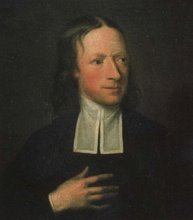
SAVANNAH, August 23, 1736.
SIR, -- I choose to write rather than speak, that I may not say too much. I find it utterly impossible anything should be kept secret unless both parties are resolved upon it. What fell out yesterday is already known to every family in Frederica; but to many it has been represented in such a light that 'tis easy to know whence the representation comes. Now, sir, what can I do more ? Though I have given my reputation to God, I must not absolutely neglect it. The treatment I have met with was not barely an assault: you know one part of it was felony. I can't see what I can do but desire an open hearing in the face of all my countrymen of this place. If you (to whom I can gladly entrust my life and my all in this land) are excepted against as partial, let a jury be empanelled, and upon a full inquiry determine what such breaches of the law deserve. -- I am, sir,
Your obliged and obedient servant.
From other sources:
From the Sherpa Guide:
Touring Fort Frederica today, one can wander the old streets, view house foundations, and read signs that explain the significance of each site. Still visible is the foundation of the Hawkins-Davison House where John Wesley encountered the wrath of Mrs. Beatre Hawkins, who attacked him with a pistol and a pair of scissors. He made good his escape, but not before she had bit him and torn his shirtsleeve with her teeth.
From : John Wesley: A Biography By Stephen Tomkins
In July, Charles resigned the post, leaving on good terms with Oglethorpe who was happy to make the far more efficient John his secretary and advised Charles to take a wife. Returning to England, Charles wrote to John putting the blame squarely on Hawkins and Welch. The women found out about the contents of the letter, which John further explained to them. Welch treated him to the most scurrilous and profane outburst he had ever heard and Hawkins demanded a home visit. He found her in her bedroom where she attacked him with a pair of scissors and a pistol… While her husband held back the constable and the neighbors, Wesley held her by her wrists and she tore into his cassock until Mr. Hawkins pulled her off.
Note: Image from Georgia's Virtual Vault (http://content.sos.state.ga.us/u?/postcard,1125) Postcard of the Hawkins-Davison House ruins at Fort Frederica.)



